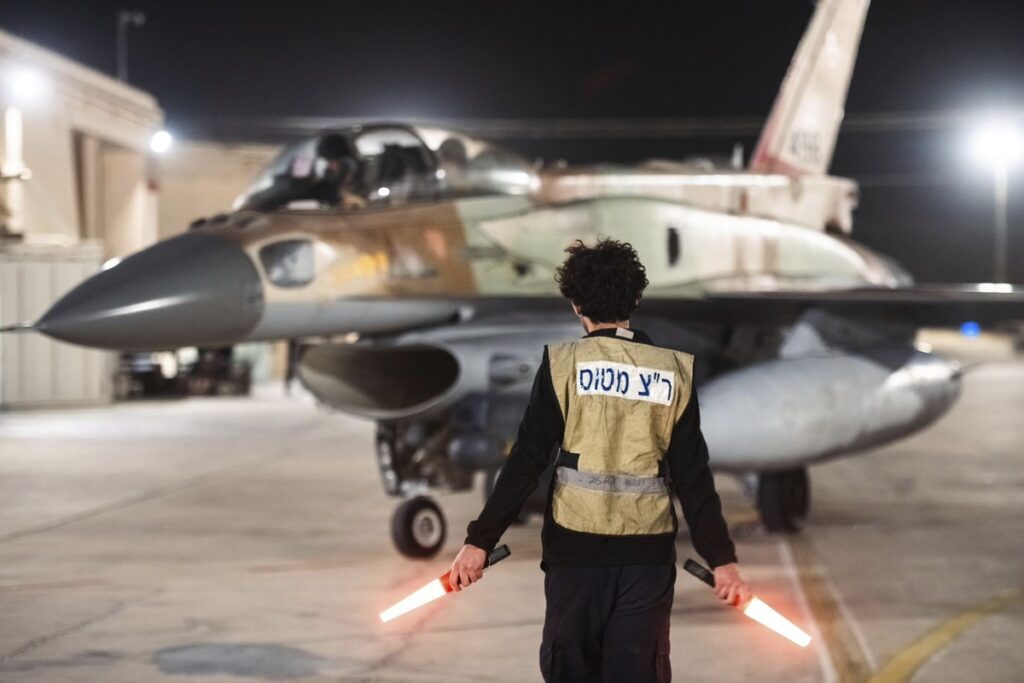The U.S. enabled Israel’s attack on Iran early on Saturday, Tehran’s foreign minister has said, as questions loom large over whether Tehran will once again hit back at Israel and further ramp up tensions in the Middle East.
“The U.S. complicity in Israel’s aggression early on Saturday is crystal clear for us,” Syed Abbas Araghchi said on Sunday, in remarks reported by Iranian state media.
Israel confirmed early on Saturday that it had conducted “precise strikes on military targets in Iran” after what the Israeli Defense Forces (IDF) described as “months of continuous attacks” from Tehran.
A senior official in President Joe Biden’s administration said late on Friday that Israel had targeted “multiple” sites across Iran, but the U.S. “was not a participant in this military operation.”
Iran’s state IRNA news agency carried a statement from the country’s General Staff early on Sunday, saying that Israeli fighter jets within 62 miles of Iran’s border “in the Iraqi airspace controlled by the U.S. had fired a number of air-launched missiles at Iranian targets in the early hours of the day.”
Newsweek has reached out to the White House for comment via email.
Israel and Iran rarely directly strike one another from their home soil, but Tehran backs Lebanese-backed Hezbollah, the influential political party and militant group Israel is fighting across its northern border.
Iran has also supported Hamas, the Palestinian militant organization that launched the deadly October 7 attacks in Israel that killed around 1,200 people, with a further 251 taken hostage in the Hamas-controlled Gaza Strip.
Israel vowed to eradicate Hamas, and its highly destructive war has reduced much of the densely populated Palestinian territory to rubble in the past year. More than 42,000 people have been killed, according to Hamas-run health authorities in Gaza.
An Israeli operation against Iran has been expected for weeks, after Tehran launched around 200 ballistic missiles at the country at the start of October. The Israeli military said at the time most of the missiles were intercepted, but that there was some minor damage.
In April, Iran launched more than 300 missiles and drones at Israel in its first-ever direct attack Israelis from Iranian territory. Tehran said the aerial assault was a retaliatory strike after seven members of Iran’s Islamic Revolutionary Guard Corps were killed in Damascus, the capital of Syria. Israel has not commented on the strike.
The U.S. was involved in intercepting both attacks on Israel, and has recently supplied an additional air defense battery to the country, designed to fend off ballistic missile strikes.
Warplanes struck “missile manufacturing facilities used to produce the missiles that Iran fired at the State of Israel over the last year,” the Israeli military said on Saturday. Fighter jets also hit “surface-to-air missile arrays and additional Iranian aerial capabilities, that were intended to restrict Israel’s aerial freedom of operation in Iran,” the IDF said.
Iran’s military said the attacks had focused on the area around the capital, as well as the country’s Khuzestan and Ilam provinces, bordering Iraq.
State media reported the attacks were “successfully thwarted,” while Iran said four of its personnel had been killed. Radar units in the three provinces “suffered “minor and ineffective” damage,” the Iranian armed forces said.
Israel does not appear to have struck Iran’s oil facilities or nuclear sites, the most contentious of possible targets and most likely to risk further escalation. Rafael Mariano Grossi, the head of the U.N.’s nuclear watchdog, said on Saturday that “Iran’s nuclear facilities have not been impacted.”
The New York Times reported that Israel had destroyed air defenses shielding a number of Iran’s oil and petrochemical plants, among other targets, citing Iranian and Israeli officials.
“We fully reserve our right to duly respond to this aggression, which cannot be separated from Israel’s genocide in Gaza and bloodshed in Lebanon,” Araghchi said in a statement posted to social media.
Araghchi told the United Nations on Saturday that Tehran would be able to launch a “legal and legitimate response to these criminal attacks at the appropriate time.”
“If Iran chooses to respond once again, we will be ready, and there will be consequences for Iran once again,” a senior Biden official said.
“However, we do not want to see that happen,” the official added. “This should be the end of this direct exchange of fire between Israel and Iran.”
Read the full article here

